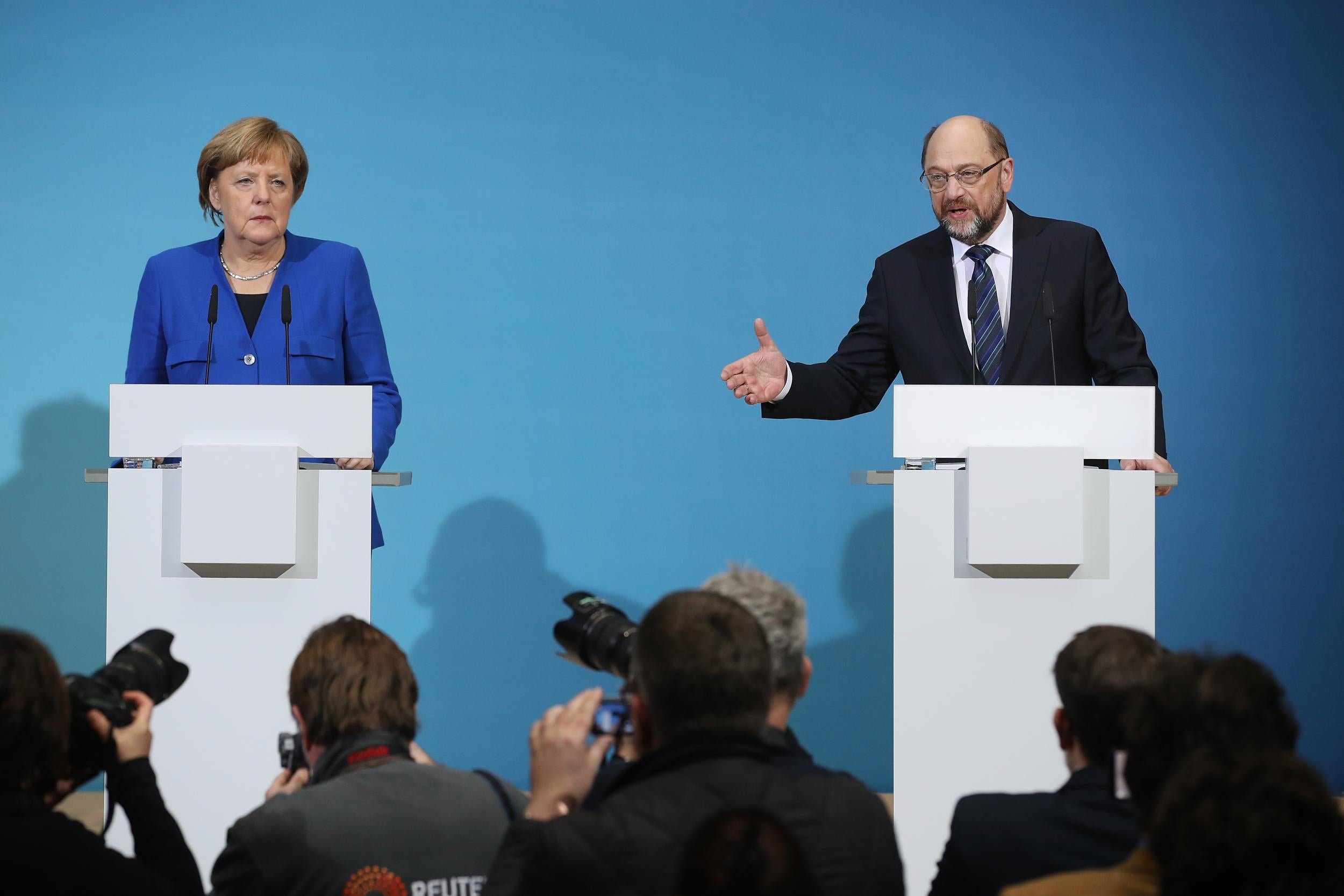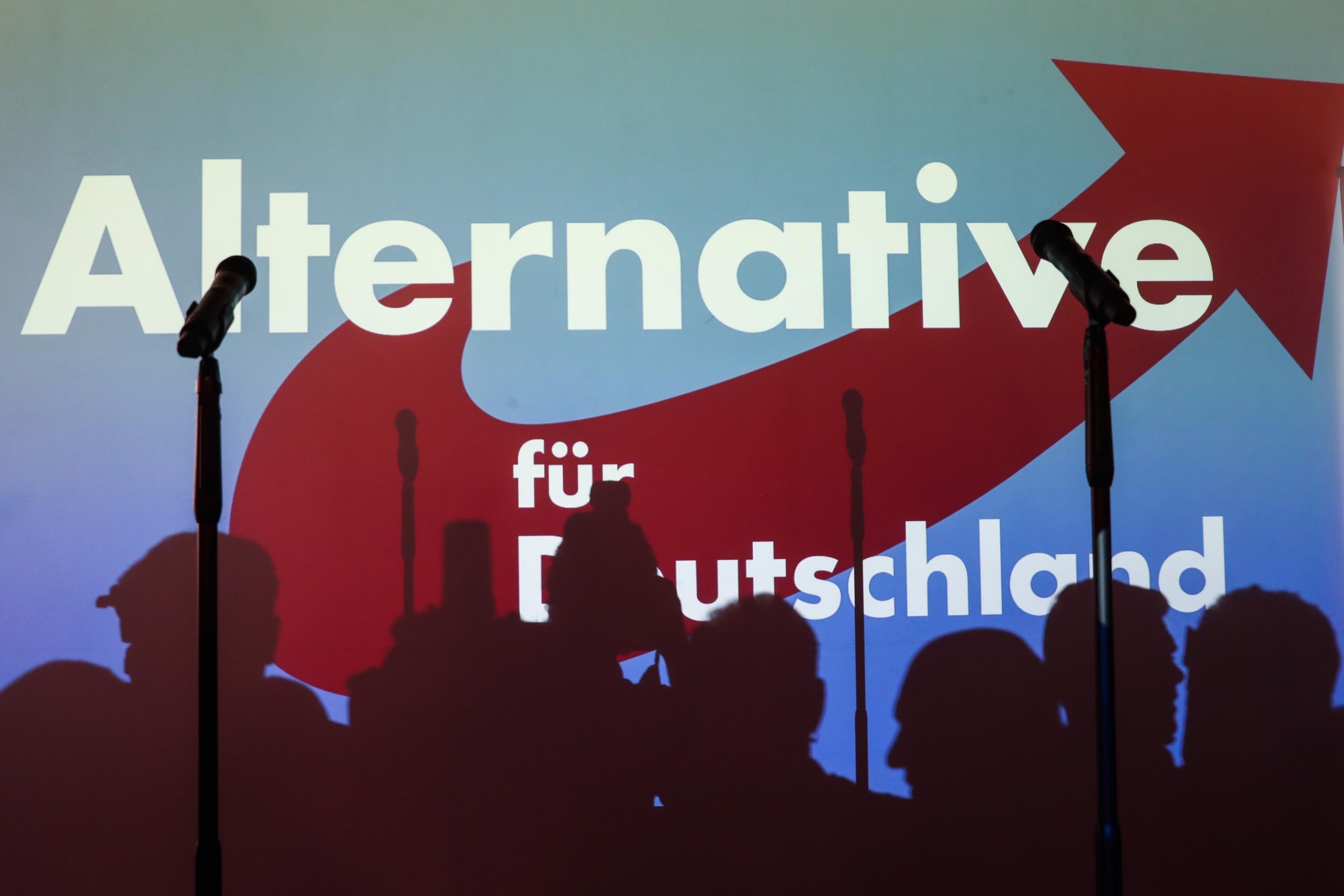Angela Merkel thrown coalition lifeline by German social democrats
Ms Merkel's CDU party has been locked in talks since September

Your support helps us to tell the story
From reproductive rights to climate change to Big Tech, The Independent is on the ground when the story is developing. Whether it's investigating the financials of Elon Musk's pro-Trump PAC or producing our latest documentary, 'The A Word', which shines a light on the American women fighting for reproductive rights, we know how important it is to parse out the facts from the messaging.
At such a critical moment in US history, we need reporters on the ground. Your donation allows us to keep sending journalists to speak to both sides of the story.
The Independent is trusted by Americans across the entire political spectrum. And unlike many other quality news outlets, we choose not to lock Americans out of our reporting and analysis with paywalls. We believe quality journalism should be available to everyone, paid for by those who can afford it.
Your support makes all the difference.Angela Merkel may yet avoid facing the German electorate for a second time in six months, after all-night talks with her social democrat opponents in Berlin saw a breakthrough towards a coalition deal.
The SPD’s party board signed off a deal on Friday that would permit the party’s leadership to negotiate a coalition agreement with Ms Merkel’s centre-right CDU.
Three months have elapsed since the Bundestag elections in September without any government having been formed, after a number of false starts and difficult arithmetic in the German national parliament.
The SPD’s leader Martin Schulz had previously ruled out continuation of the so-called “grand coalition” with Ms Merkel, which existed before the election – leaving her to search for other coalition partners.
The centre-left party took heavy losses in September elections after opponents – including the far-right AfD – portrayed the deal between the two biggest parties as an establishment stitch-up. The party sank to its worst result since the first West German elections in 1949.
But after talks for a so-called “Jamaica coalition” between Ms Merkel and the Greens and liberal FDP collapsed, the SPD opened exploratory talks with the CDU in order to avert a political crisis. The Jamaica coalition, named for the black, green, and yellow colours of the parties, would have been the only viable majority coalition without the SPD.
The SPD leadership’s decision to open talks for a grand coalition must now be put to party members in a ballot at party congress on 21 January before anything can begin in earnest.
The vote could be difficult for Mr Schulz, given that his previous decision to refrain from a coalition was popular with his supporters.

A 28-page preliminary blueprint drawn up in exploratory talks includes plans to strengthen the eurozone by cooperating with France, and a pledge to end arms sales to countries involved in the war in Yemen: a reference to Saudi Arabia. The document is open to revision during full talks, however.
Key SPD commitments to improving universal healthcare and making the tax system more progressive appear to have been watered down or dropped from the draft.
“There will be difficult tasks to come,” Ms Merkel said. “The coalition negotiations probably won’t be easier than the exploratory talks.”
The CDU’s previous negotiations with the Greens and FDP collapsed in late November at an advantaged stage after the liberals dropped out. The Jamaica coalition was as yet untested at a national level and had only been present in some state parliaments.
Join our commenting forum
Join thought-provoking conversations, follow other Independent readers and see their replies
Comments